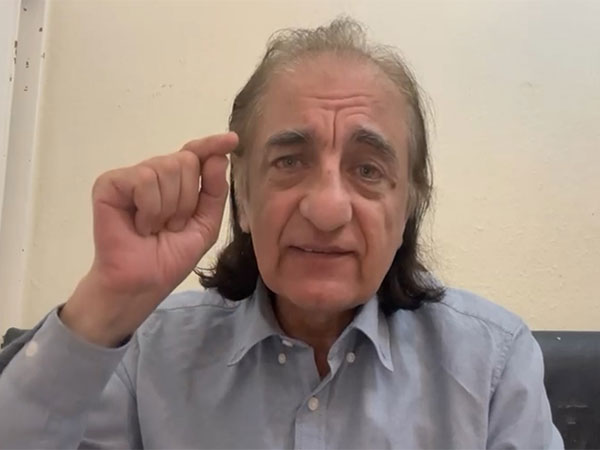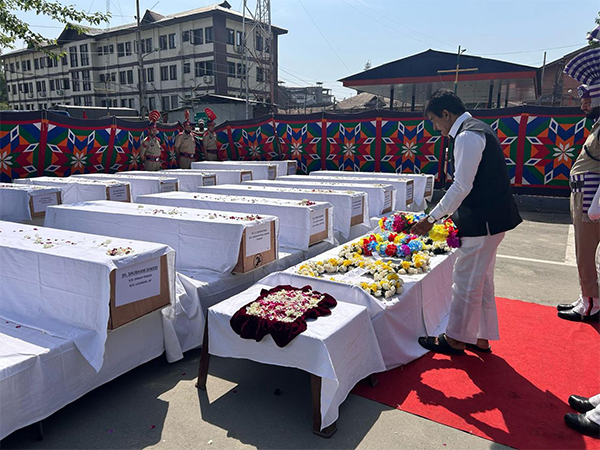Pakistani journalists who condemn Army's role in country's politics are harassed
Aug 12, 2022

Islamabad [Pakistan], August 12 : Pakistani journalists who have criticized role of Army in country's politics have been harassed and are kept under tight government and army-related agencies' control which is ultimately undermining the country's democracy, Reporters Without Borders highlighted.
Daniel Bastard, the head of Reporters Without Borders', (French: Reporters sans frontieres -- RSF) Asia-Pacific desk stressed, "The many cases of harassment that RSF has registered in the past two months have one thing in common - all the journalists concerned had, in one way or another, criticised the army's role in Pakistani politics."
"It is clear from the data that the armed forces have launched a major campaign to intimidate critical journalists. This kind of interference, which is absolutely intolerable, must stop at once or else the Chief of the Army Staff, General Qamar Javed Bajwa, will be held directly responsible for the decline in press freedom in Pakistan."
Reporters Without Borders is an international non-profit and non-governmental organization with the stated aim of safeguarding the right to freedom of information.
Since former Prime Minister Imran Khan was ousted out of power, the country under current PM Shehbaz Sharif government registered nine cases of intimidation of Pakistani journalists by army-related agencies.
Cautioning over the situation and curbs on media freedom, Reporters Without Borders (RSF) said that the army high command is harassing the media and it would seriously undermine Pakistani democracy, reported
RSF also provided details of numerous cases of violence that perpetuated against Pakistani journalists. The organization noted that in a latest case of violence on July 9, a BOL News anchor Sami Ibrahim was attacked by three people outside the TV channel's studios in Melody, Islamabad.
Ibrahim, in one his YouTube viodes, the next day, said they were waiting for him outside the TV channel in order to harass him while filming the scene. They then left in a car with green licence plates, the sign of a state-owned vehicle.
Six weeks prior to the incident, judicial proceedings were opened against Ibrahim. They were under articles 499, 505 and 131 of the penal code, which penalise defamation, statements conducive to public mischief and "abetting mutiny" respectively.
The latter charge carries a possible life sentence.
Another well-known TV journalist, Express News TV anchor Imran Riaz Khan, in Attock was intercepted and arrested by a dozen policemen accompanied by members of a Punjab special elite force on the evening of July 5 at a toll plaza on the road to Islamabad.
In Khan's case again, the grounds for the complaints were comments he made criticising the current government. He had planned to obtain pre-arrest bail to avoid the arrest he knew was imminent if he remained in Punjab however soon before that the policemen arrested him.
Khan is the target of at least 17 charges that the Punjab prosecutor's office has brought against him since May under the prevention of electronic crimes act and several penal code articles - charges that include "hurting the sentiments of the Pakistani people" and "treason."
After many appeals, Khan was finally released on bail on July 9 pending a new hearing scheduled for 19 July. In practice, he faces a range of possible penalties that, in theory, include the death penalty.
On the eve of his arrest, he posted an analysis of his own situation on his YouTube channel in which he referred to threats against him and his family by General Bajwa.
Khan made no secret of his support for Imran Khan, the prime minister ousted on April 10, and he has often questioned the army's role in Khan's ouster and replacement by Sharif as prime minister.
It was from his stronghold in Punjab, where he was chief minister for 12 years, that Sharif engineered his takeover and forged alliances within the military, above all with the all-powerful General Bajwa, who also started his career in Punjab.
In Punjabi capital, Lahore, Ayaz Amir, another TV journalist, was attacked on the night of 30 June. He was dragged from his car and beaten as he was returning home from recording a programme at his TV channel, Dunya News.




















